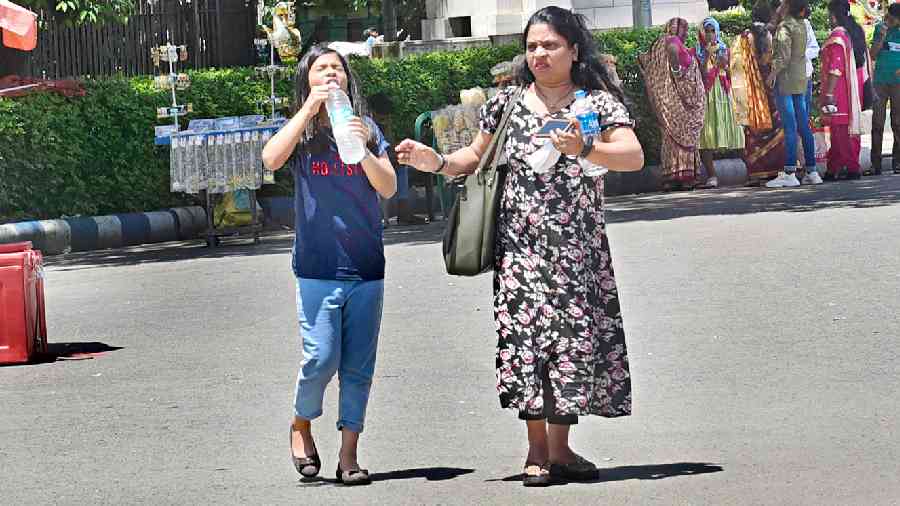The lack of adequate rain so far this monsoon has triggered apprehensions of excessive rain in September that could lead to flooding, the chairman of West Bengal Pollution Control Board (WBPCB) said while talking about climate change and transition to cleaner sources of energy on Friday.
Kalyan Rudra, chairperson of the WBPCB, said excess or high volume of rain in a short span of time means more water is wasted as runoff, which otherwise would have recharged groundwater. The high volume of runoff in a short span inevitably causes flooding.
A weather scientist later told The Telegraph that though it could not be conclusively said that paucity of rain in the first two months of the monsoon would mean excess rainfall in the last month, there have been such examples.
Sanjib Bandyopadhyay, deputy director general of the India Meteorological Department (IMD), Kolkata, said extreme weather events, which include inter-annual variation in the volume of rain, have increased.
The monsoon has so far been lacklustre this year in Kolkata. June, July and August have registered rain deficits on the trot, something that weather scientists said was unusual.
July, usually the wettest month in the city, ended with a rain deficit of nearly 30 per cent. August, the second-most rainy month, fared slightly better, ending with a 20 per cent rain deficit. The cumulative rain deficit (June 1 to September 2) in Kolkata stands at 35 per cent, said another Met official.
“I have not seen such a rainless monsoon. This raises apprehensions that there could be excess rain in September, which could lead to floods. Whenever there is an unusually high volume of rain over a short period, there is more runoff that flows into roads and fields. This leads to flooding,” said Rudra, who was speaking at a dialogue organised by the Just Transition Research Centre of IIT Kanpur in Kolkata.
“If the rainfall is evenly distributed over the monsoon, a high volume of water infiltrates into the soil and recharges the groundwater reserves. That does not happen if there is excess rain in a few days as most of the rainwater fails to infiltrate beyond the surface,” he said.
“Extreme weather events have indeed increased. The range of inter-annual variation in rainfall has increased. Though it cannot be conclusively said that a lack of rainfall between June and August means excess rain will occur in September, there have been such examples. At the same time it must be added that droughts happen when there is a paucity of rain all through the monsoon,” Bandyopadhyay said.
After a timid arrival on June 18, the monsoon currents have mostly lacked momentum. The city has received occasional spells of heavy rain, but the showers have mostly been triggered by local thunderclouds. As a result, they have not been uniform.
On August 27, for example, parts of central Kolkata received over 60mm of rain in a couple of hours in the afternoon. But places like Gariahat, Behala and Salt Lake barely got a drizzle.
During the monsoon, rain-bearing systems — low-pressure areas — over the Bay of Bengal provide impetus to the monsoon currents. July and August are usually the most fertile months for the formation of such systems. While July saw very few systems on the Bay, they formed near the Odisha and Andhra Pradesh coastlines.
August saw multiple systems but only a couple formed near the West Bengal coast.
Board yet to get details
The state primary education board, which had asked the district primary school councils for information on appointment letters for the posts of primary teachers from 2011, has sent a report to the enforcement directorate informing the agency that some districts have yet to send the information.
The board asked the councils to send within September 1 the details of the appointees who have been appointed as primary school teachers on and from 2011 till now.
Goutam Paul, president of the ad-hoc committee tasked with running the board, however, did not reveal how many districts have failed to comply with the deadline.
